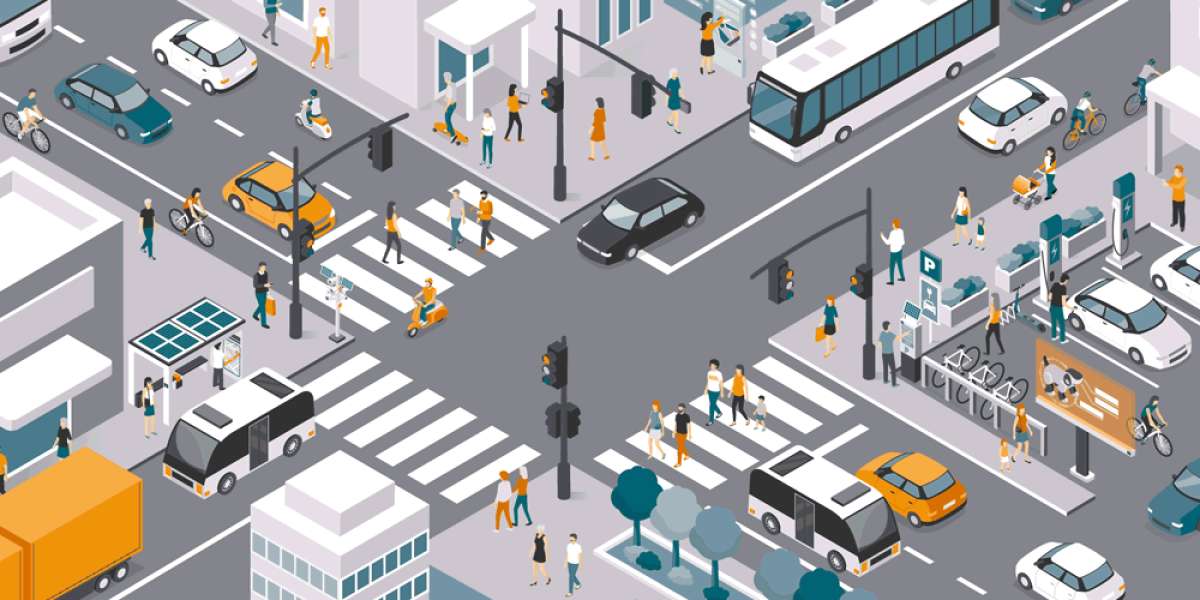Market Overview:
According to MRFR analysis, The Smart Transportation industry is projected to grow from USD 141.58 Billion in 2023 to USD 251.45 Billion by 2030, exhibiting a compound annual growth rate (CAGR) of 9.03% during the forecast period (2023 - 2030). The report by Market Research Future provides valuable insights into the global smart transportation market. It identifies the key factors driving the growth of the market, including the increasing demand for efficient and sustainable transportation, the growing adoption of connected and autonomous vehicles, and the rising trend of smart cities.
Furthermore, the report highlights the key challenges faced by the industry, such as the lack of standardization in the industry, concerns over data privacy and security, and the high cost of implementation. The report also analyzes the current market trends and provides a detailed forecast for the future of the smart transportation market.
Regional Analysis:
Geographically, the global smart transportation market is segmented into North America, Europe, Asia-Pacific, and the rest of the world. North America is expected to dominate the market during the forecast period due to the high adoption rate of connected and autonomous vehicles in the region. The region is also home to some of the world's largest technology companies that are driving the growth of the smart transportation market.
Free Sample Copy - https://www.marketresearchfuture.com/sample_request/2467
Key Players:
The global smart transportation market is highly competitive with several players operating in the market. Some of the key players in the market include IBM Corporation, Cisco Systems, Inc., Siemens AG, Alstom SA, Thales Group, General Electric Company, TomTom NV, Cubic Corporation, Kapsch TrafficCom AG, and LG CNS Co. Ltd.
Introduction:
The global smart transportation market is poised for a momentous transformation, fueled by cutting-edge technologies and a growing emphasis on sustainability. This dynamic shift promises to revolutionize the way people and goods move, enhancing efficiency, safety, and environmental consciousness on a global scale.
Smart transportation, an intersection of digital advancements and traditional transport systems, is rapidly gaining traction as a vital solution to urban congestion, pollution, and resource inefficiencies. The integration of IoT (Internet of Things), AI (Artificial Intelligence), data analytics, and smart infrastructure is reshaping the mobility landscape, creating exciting possibilities for governments, industries, and commuters alike.
Key Trends Shaping the Smart Transportation Market:
- Connected Vehicles: The proliferation of connected vehicles equipped with real-time communication capabilities is redefining the driving experience. These vehicles not only ensure safer journeys through features such as collision avoidance and traffic alerts, but they also optimize traffic flow, reducing congestion and travel times.
- Autonomous Vehicles: The race toward fully autonomous vehicles is reaching new heights, with companies investing heavily in self-driving technology. These vehicles have the potential to enhance road safety by minimizing human errors and can significantly transform transportation accessibility for people with limited mobility.
- Smart Infrastructure: The integration of smart sensors and infrastructure is paving the way for intelligent traffic management. Smart traffic lights, adaptive signage, and data-driven road maintenance are streamlining transportation networks and minimizing environmental impacts.
- Ride-sharing and Mobility-as-a-Service (MaaS): Traditional transportation models are being reimagined through innovative ride-sharing services and Mobility-as-a-Service platforms. These solutions provide users with convenient, cost-effective alternatives to private car ownership, thereby reducing traffic congestion and carbon emissions.
- Data-driven Insights: The abundance of data generated by connected vehicles and infrastructure is a goldmine for urban planners and policymakers. Data analytics tools are being used to derive insights into traffic patterns, enabling responsive decision-making for improved urban mobility.
- Electric and Sustainable Transportation: The urgent need to address climate change is driving the adoption of electric vehicles and sustainable transportation solutions. Smart transportation is facilitating the transition by integrating electric charging infrastructure and optimizing routes for energy efficiency.
The smart transportation market is witnessing robust growth, with startups and established tech giants alike vying to make their mark. This competitive landscape is fostering innovation and cross-industry collaborations that are essential for realizing the full potential of smart transportation.
As the world marches toward an increasingly connected and sustainable future, the smart transportation market stands at the forefront of this transformative journey. With benefits ranging from enhanced safety and efficiency to reduced environmental impact, the innovations within this sector are set to make an indelible mark on how we move.
Related Reports:
Conclusion:
The global smart transportation market is witnessing significant growth, driven by factors such as urbanization, demand for integrated mobility, government initiatives, technological advancements, and environmental sustainability. The integration of IoT, AI, and other advanced technologies is transforming the transportation sector, offering enhanced connectivity, improved safety, and optimized resource utilization. While challenges exist, collaborative efforts and continued innovation will pave the way for a smarter and more efficient transportation future, revolutionizing the way we move and shaping the cities of tomorrow.



![Low Dielectric Glass Fibre Market [2024] Size,Trends and Scope till 2031](https://xoxa.pengembangsebelah.com/upload/photos/2024/04/iTeUimA6rFD4T6Eohl2I_19_cfedf8e521bbf5c9c8150d7d0683bdb7_image.jpg)







